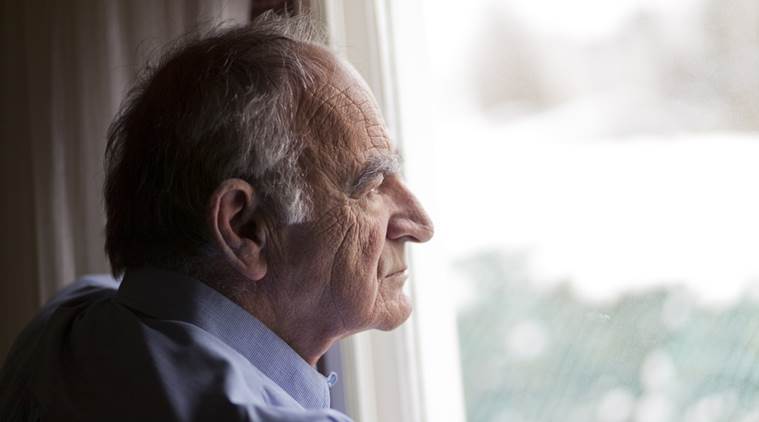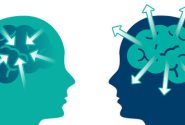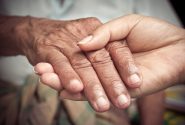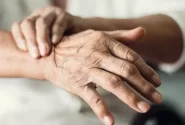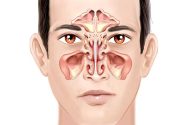به گزارش پایگاه خبری تحلیلی تسریر، به نقل از مدیسن نت، به گفته کارشناسان دانشگاه کالیفرنیا سانفرانسیسکو و هاروارد، افرادی که از زوال عقل و کسانی که از آنها مراقبت می کنند، با پیشرفت بیماری باید غربالگری شوند، بنابراین ارائه دهندگان می توانند راه هایی برای حفظ ارتباط اجتماعی آنها بیابند.
بیمارانی که میانگین سنی آنها در این مطالعه ۸۰ سال بود، شبکه های اجتماعی خود را از دست داده بودند، زیرا خاطرات ناکارآمد آنها مکالمه را دشوار می کرد و خانواده و دوستان آنها ناراحت می شدند. مراقبانی که میانگین سنی آنها ۶۷ سال بود و شامل همسران، فرزندان بزرگسال و دیگران بود، با افزایش مسئولیت هایشان منزوی شدند. آنها همچنین از دست دادن روابط خود با بیماران در زمانی که این روابط خوب بود، اندوهگین شدند.
نیازهای اجتماعی برآورده نشده بر کیفیت زندگی تأثیر منفی میگذارد و این میتواند منجر به پیامدهای سلامتی مانند افسردگی و بیماریهای قلبی عروقی و همچنین استفاده زیاد از مراقبتهای بهداشتی و مرگ زودرس شود.
Ashwin Kotwal، M.D.، استادیار پزشکی در بخش UCSF از سالمندان، و اولین نویسنده این مطالعه؛
کوتوال، که همچنین وابسته به مرکز پزشکی سانفرانسیسکو VA است، گفت: «ما از تحقیقات قبلی می دانیم که افراد مسن با سطوح بالاتر انزوای اجتماعی بیش از دو برابر شانس قرار گرفتن در خانه سالمندان را دارند»
این مطالعه که در ۱۸ مارس ۲۰۲۴ در The Gerontologist منتشر شد، شامل اطلاعاتی از ۲۲ بیمار عمدتاً مرد مبتلا به زوال عقل و چهار دوجین مراقب عمدتاً زن بود که برخی از آنها اخیراً از دست رفته بودند.
دکتر کریستا هریسون، از بخش سالمندان UCSF، ابتکار بهداشت جهانی مغز و موسسه مطالعات سیاست سلامت گفت: «شرکت در گروه های حمایتی، که در آن بیماران و مراقبان آنها می توانند به طور جداگانه ملاقات کنند، ممکن است مکان های کم استرسی برای معاشرت و دریافت مشاوره باشد.»
فیلیپ آر لی، نویسنده ارشد این مطالعه، خاطرنشان کرد که «غربالگری چند دقیقه طول می کشد و می تواند توسط پزشکان، مددکاران اجتماعی یا درمانگران انجام شود».
او گفت: «پزشکان باید درباره گزینههایی مانند گروههای اجتماعی که برای بیماران مبتلا به زوال عقل و مراقبان آنها طراحی شده است، بحث کنند. “تحقیقات قبلی نشان می دهد که با پیشرفت بیماری می توان از فعالیت های معنی دار لذت برد. ممکن است راه های ساده ای برای تطبیق فعالیت ها وجود داشته باشد، مانند تغییر حضور از یک مکان عبادت به شرکت در یک سرویس توسط زوم با یک گردهمایی کوچک در خانه.”
این مصاحبه ها برای دو مطالعه قبلی انجام شد: مراقبت تسکینی دمانس، به رهبری هریسون، که بیماران مبتلا به زوال عقل خفیف تا متوسط و مراقبان آنها را بررسی کرد. و Music and Dementia Caregiving، که توسط نویسنده همکار ترزا آلیسون، M.D., Ph.D.، به بیماران مبتلا به هر مرحله از زوال عقل و مراقبان زنده آنها، از جمله کسانی که از کمک مراقبان حرفه ای برخوردار بودند، بررسی کردند.
کسانی که روابط خوبی دارند بیشترین ضرر را دارند
یک مطالعه اخیر به رهبری UCSF روی زوجهای متاهل، که در آن یکی از زوجها زوال عقل داشت، تغییر جدیدی را به مطالعه فعلی ارائه کرد. محققان دریافتند که شرکای افراد مبتلا به زوال عقل که از روابط خود بسیار راضی بودند، احساس تنهایی بیشتری نسبت به گذشته داشتند. اما کسانی که در روابط بی کیفیت بودند، علیرغم اینکه به طور کلی میزان افسردگی و تنهایی بالاتری داشتند، تحت تأثیر زوال عقل شریک زندگی خود قرار نگرفتند.
کوتوال، نویسنده ارشد این مطالعه گفت: «افرادی که با شریک زندگی خود ازدواج میکنند، وقتی یکی از زوجین دچار زوال عقل میشود، ضرر بیشتری دارند. اما کسانی که کیفیت زناشویی پایینتری دارند، حمایت عاطفی حاصل از ازدواج را که میتواند در برابر تنهایی و افسردگی محافظت کند، از دست دادهاند.
People with dementia and those who care for them should be screened for loneliness, so providers can find ways to keep them socially connected, according to experts at UC San Francisco and Harvard, who made the recommendations after finding that both groups experienced declines in social well-being as the disease progressed.
The patients, whose average age in the study was 80, had lost their social networks as their failing memories made conversation difficult, and their family and friends grew uncomfortable. Caregivers, whose average age was 67 and included spouses, adult children and others, became isolated as their responsibilities mounted. They also grieved the loss of their relationships with the patients when those relationships were good.
Unmet social needs negatively impact quality of life, and that can lead to health outcomes like depression and cardiovascular disease, as well as high health-care use and early death”
Ashwin Kotwal, M.D., assistant professor of medicine in the UCSF Division of Geriatrics, and first author of the study
“We know from previous research that older adults with higher levels of social isolation have more than double the odds of nursing home placement,” said Kotwal, who is also affiliated with the San Francisco VA Health Medical Center.
The study, which appears in The Gerontologist on March 18, 2024, included information from two dozen mainly male patients with dementia, and four dozen mainly female caregivers, some of whom were recently bereaved.
“Participating in support groups, in which patients and their caregivers can meet separately, may be low-stress places to socialize and get advice,” said Krista Harrison, Ph.D., of the UCSF Division of Geriatrics, Global Brain Health initiative and Philip R. Lee Institute for Health Policy Studies, the study’s senior author, noting that screenings take minutes and can be done by doctors, social workers or therapists.
“Clinicians should discuss options like community choirs that have been tailored for patients with dementia and their caregivers,” she said. “Prior research shows that meaningful activities can be enjoyed as the disease progresses. There may be simple ways of adapting activities, like switching attendance from a place of worship to participating in a service by Zoom with a small gathering at home.”
The interviews were conducted for two earlier studies: Dementia Palliative Care, led by Harrison, which examined patients with mild-to-moderate dementia and their caregivers; and Music and Dementia Caregiving, led by co-author Theresa Allison, M.D., Ph.D., which looked at patients with any stage of dementia and their live-in caregivers, including those who had the assistance of professional caregivers.
Those in good relationships have the most to lose
A recent UCSF-led study of married couples, in which one partner had dementia, offered a fresh twist to the current study. The researchers found partners of people with dementia who were highly satisfied with their relationships experienced more loneliness than they had previously. But those in poor-quality relationships were not impacted by their partner’s dementia, despite having higher rates of depression and loneliness overall.
“People who are really invested in their marriage or partnership have more to lose when one partner develops dementia,” said Kotwal, the study’s senior author. “But those with lower marital quality have already lost the emotional support from the marriage that can be protective against loneliness and depression.”
تسریر مراقب سلامتی شماست!

